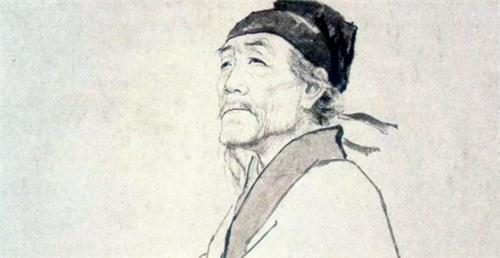The Tang Dynasty is the most prosperous dynasty in Chinese history, whether it is culture or diplomacy, it has achieved unprecedented achievements, thus also giving birth to Du Fu, a poet, who has written countless poems that worry about the country and the people, and are popular among the population, but even this great poet saint has very embarrassing times, "Twenty Rhymes to Geshu Kaifu Han", which can be said to be the poem that Du Fu is least willing to mention, in the poem, he tried his best to praise a general, but after only two years, this person has already treasoned to the enemy. What's going on?

Because this poem is too long, it will not be listed in detail, but you may wish to look at a few sentences in it, and the opening paragraph says"This generation of Qilin Pavilion, who is the first to do." The king is a hero in his own way. "Who is Du Fu boasting?" It was the famous Tang general Ge Shuhan, and the Qilin Pavilion was the place where the Tang Emperor was crowned a meritorious person, but Du Fu believed that who in contemporary times could be listed as the number one meritorious person? Naturally, it is the heroic General Goshuhan, because only a wise and mighty Saint Lord can control a hero like you! In fact, this sentence slapped tang Xuanzong and Ge Shuhan's ass.
However, Du Fu's words are not false, the Tang Dynasty was open-minded, not only allowing foreigners or foreigners to become officials, but also trusting them very much, thus giving birth to a large number of outstanding talents, such as Gao Xianzhi (Goryeo) and GeShuhan (Turkic). And Ge Shuhan was the most outstanding general in the Tang Xuanzong period, serving as the general of the Left Wei Zhonglang, repeatedly defeating Tubo, and in 749 launched the Battle of Shibaocheng, achieving great victories, opening up territory and expanding the territory, and becoming the biggest hero in the minds of the Tang Dynasty, so he also deserved Du Fu's reputation.
The background of the creation of this poem is the thirteenth year of Tianbao in the Tang Dynasty (754), when Du Fu lived in Ducheng under Chang'an. Tian Liangqiu, who was then the judge of the Hexi Jiedu envoy Ge Shuhan, because of the exclusion, his desire to join the army to establish meritorious service was very urgent, so he wrote this poem and could not wait to entrust his friends to give it to Ge Shuhan, and wrote at the end of the poem: "The military left Sun Chu, and the line knew Lü Meng." A long sword for self-defense will want to lean on Kun Gong. It means", "You let talents like Sun Chu stay in the shogunate, and then you promoted generals like Lü Meng in the ranks." I also wear a long sword by my side, and I want to throw it in front of your tent to show my majesty. It expressed Du Fu's ambition to establish a meritorious name.
Later, Whether Ge Shuhan reused Du Fu did not know how, but two years later, during the Anshi Rebellion, the main force led by Ge Shuhan was completely destroyed, and he himself was captured, he chose to surrender this road to save his life, the Old Book of Tang records: After Lushan saw Ge Shuhan, he was triumphant, "You have always looked down on me in the past, how are you now?" At this time, Ge Shuhan did not have the courage of a hero at all, and actually knelt down in front of An Lushan and prostrated himself to apologize, "The naked eye does not know Your Majesty, so this is it." His Majesty is the Lord of Chaos, destined for. ”
To be honest, this also did not blame Ge Shuhan, all because Yang Guozhong was greedy and urged Ge Shuhan to advance, resulting in a major defeat of the Tang army, and Ge Shuhan himself was forced to a dead end, and in the end, although he surrendered, he was still killed by An Qingxu, the son of An Lushan. The end of a generation of famous generals in this kind of nest makes people sigh, and this is equivalent to punching Du Fu's face, and later how to evaluate his former boss? The "Tongguan Official" mentions: "I would like to warn the generals to be careful not to learn From Geshu." "It's also ironic to say.